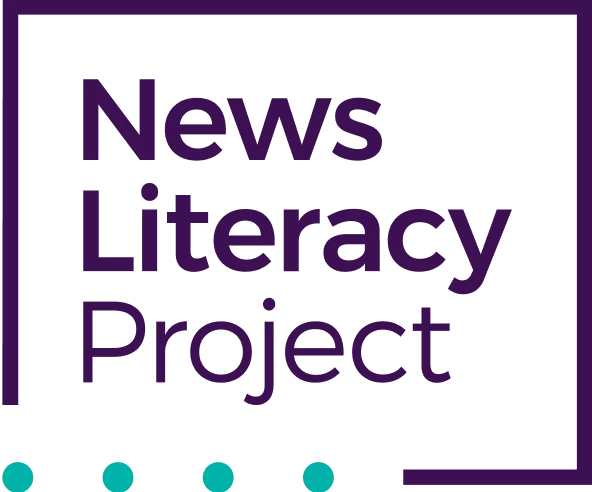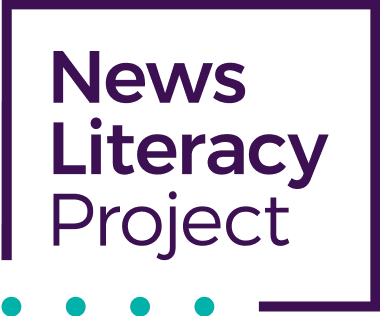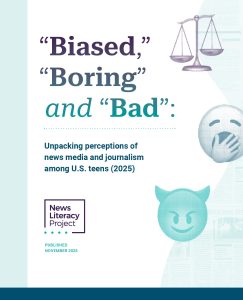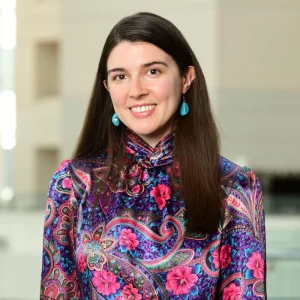Scripps News showcases News Literacy Project study on teen media habits with classroom visit
Media mentions
Journalism
Misinformation
Some 8 in 10 teens say they tend to believe one or more conspiracy theories they see online, according to a new study from the News Literacy Project.
“Anyone who’s worried about our democratic system, our civic dialog, education, or even the future of journalism, the future of media, should really be concerned,” notes Charles Salter, CEO and President of NLP.
But the study also shows positive associations with media literacy instruction. As one teacher in this article notes, NLP lessons help students “sift through the murky online marketplace of misinformation.”
Watch the Scripps News piece here.
